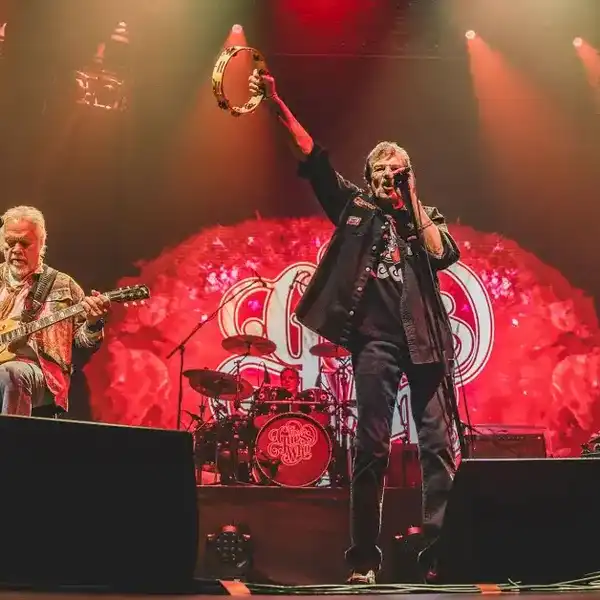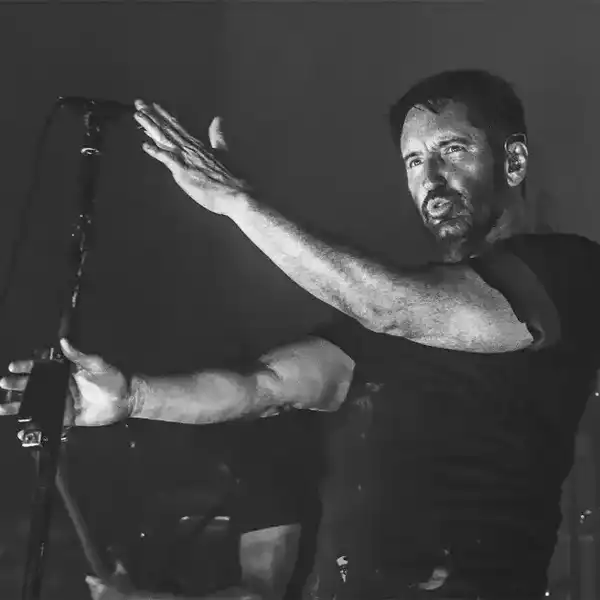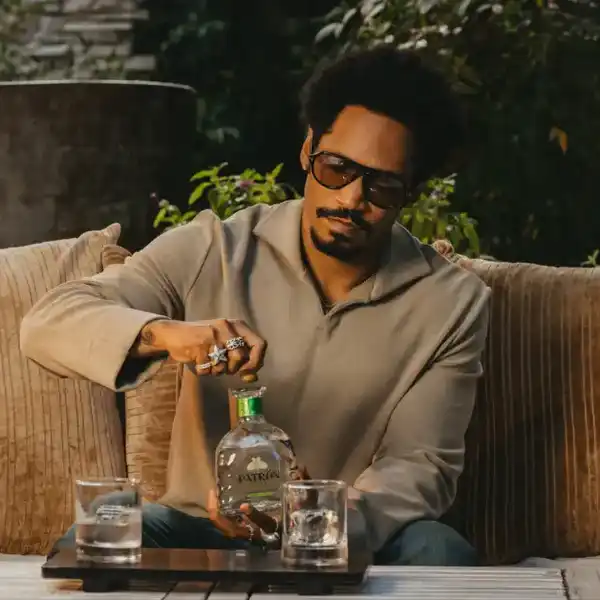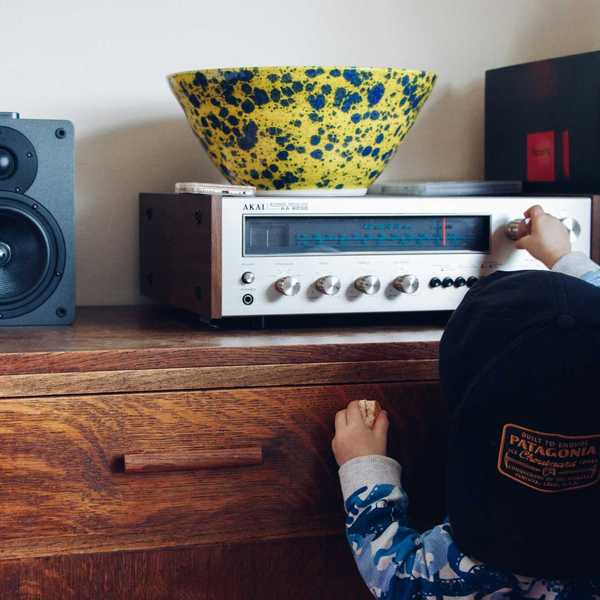The Story Behind Kind Of Blue: Interview With Bill Evans
A rarely broadcast interview tape with the famed pianist is full of fascinating insights into the making of arguably the most popular jazz album ever.

By Bill King
It was through a cover story in a 1960 Downbeat magazine that I discovered pianist Bill Evans. With that issue came a subscription offer that included a copy of the Bill Evans Trio – Everybody Digs Bill Evans, on the Riverside label. Until the arrival of the LP, I’d been locked to the piano with pianist Oscar Peterson, Phineas Newborn, George Shearing, and Dave Brubeck. After a few plays it became increasingly difficult to hear harmonies played with less density and tension.
Evans tucked himself away in the corner of the brain in such a way it was if life was one eternal cycle of springtime – renewal and rebirth. The one solo piece - Peace, Piece - forever altered the landscape. I could hear it in Marvin Gaye’s music years down the road – Little Anthony and the Imperials, jazz, soul, pop – all owed Evans a firm handshake. Evans moved us into the modern piano era with follow-ups: Waltz for Debby, Portraits in Jazz, Sunday at the Village Vanguard, Undercurrents.
It was somewhere in the late '90s I interviewed jazz journalist Gene Lees who was central in elevating the mystique and publicizing the artistry of the brilliant pianist. This from Joe Maita in the blog, JerryJazzMusician:
“In Lees’ essay 'The Poet: Bill Evans, he writes of his discovery of the great pianist in 1959, as editor of Downbeat, when he noticed, “among a stack of records awaiting assignment for review a gold-covered Riverside album titled Everybody Digs Bill Evans… I took the album home and, sometime after dinner, probably about nine o’clock, put it on the phonograph. At 4 a.m. I was still listening, though by now I had it memorized.” His fascination with the recording led to his decision to put Evans on the cover of Downbeat’s December 1960 edition.”
Evans would join Miles Davis' band April 1958, replacing pianist Red Garland. During this period Evans' opportunities and focus on his own career would lead him to depart the group, then rejoin early 1959 for the recording of Davis’s epic Kind of Blue.
“Bill had this quiet fire that I loved on piano. The way he approached it, the sound he got was like crystal notes or sparkling water cascading down from some clear waterfall. I had to change the way the band sounded again for Bill's style by playing different tunes, softer ones at first.” (Miles Davis)
After catching a recent screening of the Miles Davis documentary Birth of Cool, I found it fascinating watching the interplay between musicians, especially the collaborative and compatible moments between Davis and Evans. I came across a blog curated by music college administrator/blog Allan Chase with a detailed interview with pianist Bill Evans. It was taped by Bill Goldberg at Bill Evans’ Fort Lee, NJ apartment, not at a radio studio, with interviewer Goldberg, and is shared with his written permission. The second interviewer was Eddie Karp (according to Ashley Kahn), and the only known broadcast was July 4, 1979, on WKCR-FM, New York City as part of the 126-hour Miles Davis Festival.
The broadcast was from an audio cassette taped off the air live by Lewis Nash, listening in Bronxville NY, then digitized from a copy of the recording in the late 1990s and transcribed by Allan Chase, 3/24/19-5/8/19.
Allan Chase had been playing jazz and improvised music with professional musicians since 1975, and teaching it in colleges since 1981 at Berklee, Tufts, and New England Conservatory.
Since 1996, while continuing to teach and play, Chase has also been a music college administrator: NEC’s chair of Jazz Studies and Improvisation (1996-2001), Dean of Faculty (supervising classroom curriculum including Jazz and Contemporary Improvisation) (2000-2006), co-chair and then chair of Contemporary Improvisation (2005-8), acting chair of Liberal Arts (2007-8), and Berklee’s chair of Ear Training (2008-present).
Bill Evans on Miles Davis and Kind of Blue.
“I’ve been looking forward to sharing this informative interview with Bill Evans for a long time. It seems to me that it contains some valuable and possibly unique insights and details about the compositions and recording of Kind of Blue and Evans’ views on and relationship with Miles Davis,” says Chase. The interview was broadcast on July 4, 1979, shortly after it was recorded (at Bill Evans’ apartment, exact date unknown) as part of the 126-hour Miles Davis Festival on WKCR FM, the Columbia University station in New York City. There are other interviews from the festival online, including an equally interesting Phil Schaap interview of Jimmy Cobb. I’m not aware of another source that gives this much first-hand detail about the compositions, how they were made and taught, what was written down by whom, and what parts were spontaneously created.
Despite a handful of memory slips or inaccurate details, I feel Bill Evans is as reliable a source in this interview as anyone could reasonably be expected to be 20 years after a recording session. He recalled that the album was recorded in one afternoon (“as far as I can remember”), when it was actually two sessions about seven weeks apart. But no one involved knew what Kind of Blue was going to be when those record dates happened. They were significant sessions, since Evans was called back to the band he had left, but each was also just another day in the studio for busy musicians, and many such days in jazz musicians’ careers led to unreleased material. (I wonder if McCoy Tyner remembers he did a Milt Jackson recording date on the same day as A Love Supreme. Of course, there was more than one attempt at recording A Love Supreme, and they didn’t know that was the one then, either.)
Evans says the album was entirely first takes, and consisted of the only complete takes, which was commonly believed at the time, although we now know that there’s a complete alternate take of Flamenco Sketches. He doesn’t mention that the line used as an introduction to So What was written by Gil Evans, but it’s possible he never knew that, or didn’t think to mention it. The story of Blue in Green has been told in a little more detail elsewhere — see my footnote** at the bottom of this post.”
Here it is. Enjoy!
WILLIAM (BILL) GOLDBERG: And [in] this portion of the Miles Davis Festival, we’re fortunate to have with us pianist-composer Bill Evans, and Bill was with Miles in the late fifties, and he was on that classic recording Kind of Blue, which is still probably one of the best-selling jazz records. And, [it’s] funny, yesterday, I was calling up these record stores, ‘cause I’m doing this research on what was the best-selling things for this organization, NYC Jazz, and, other than the George Bensons and those…
BILL EVANS: Yeah, Kind of Blue is it, that’s what I understand, yeah. It certainly has been a strong album, and an album I was very proud to be part of.
Twenty years ago, did you think it would become such a model? Important, I mean.
No, I thought it had to be a good record with the personnel that was involved, and, also, I think that was perhaps the first time that Miles had ever recorded an album where it was largely his compositions. And, there was a good feeling on the date, but I really had no idea, and I don’t think anybody did, that it would have the influence or the duration that it did, because you just go and you do, you know, you do your thing. But of course, the people involved were pretty gigantic when you stop and think of it. Miles and Cannonball and Coltrane and Paul Chambers, and Jimmy Cobb, and Wynton Kelly was on one track, which is a beautiful track, too. I think Miles’ blues solo on that track is one of my favorite solos of his. So y’know that would predictably make it somehow, but you can’t really tell. I don’t know what it was, really. It just seemed to click.
A lot has been said about the use of modes [and less?] traditional chord changes…
Yeah, mm-hmm. Yeah, that may have had something to do with it: just the fact that there were new kind of challenges to play off, and there was a simplicity about the charts that was remarkable, too. Like, Freddie the Freeloader, So What, and All Blues, there was nothing written out on. On So What, I think the introduction was written out single line, and Paul and I played it and added a little harmony to it. Other than that, the charts were just spoken, just saying like “play this figure,” “you play this note, you play this note.”
And I sketched out Blue in Green, which was my tune, and I sketched out the melody and the changes to it for the guys, and Flamenco Sketches was something that Miles and I did together that morning before the date. I went by his apartment and he had liked Peace Piece that I did, and he said he’d like to do that.
I thought maybe instead of doing one ostinato, we could move through two or three or four or five different levels that would relate to each other and make a cycle, and he agreed, and we worked at it at the piano until we arrived at the five levels that we used. And I wrote those levels out for the guys, you know, that was all just little sketches, and, but other than that, it was a very simple thing that he came in with conceptually and sketch, you know, the little sketches I made, so that a lot — all, all of it was more or less created out of the musicians themselves, and all the things that were added, now, like on All Blues you know the little fluttering figure I played at the beginning is just something I throw in, just like, anybody will add as jazz players to it, to a thing. But Miles had that ability to create a kind of simple figure, like on So What or All Blues, that still generates a complete and positive reference off of which you can play and still relate to something which is unique, see? And so even though All Blues is a blues, it’s a particular kind of blues, it has a particular kind of structure, and it’s all contained in the chart, really.
Right. It’s like, on All Blues it seems like there’s certain simple ideas that Miles uses, particularly in his chorus at the end of the piece [unintelligible?] so simple, but so beautiful, so perfect just to have the idea to do that.
Yeah, that’s a tremendous maturity, and yeah, it is, it certainly is. He can play just one note, a line which maybe, talking about [sings a simple rhythm: quarter notes on the beat with a repeated pitch].
Yeah, exactly, that’s it.
Or, there are a couple of places on Freddie the Freeloader where just one note contains so much meaning that you just can hardly believe it. And that’s what he got to, I guess, by this time. But that’s kind of a picture of the date, and it was all done in one afternoon as far as I can remember. And the other thing was that the first complete performance of each thing is what you’re hearing, like the, Miles ran over the charts maybe a couple times, say “do this, do that,” and then he laid out a structure, like you solo first or whatever. Sometimes during a take, we wouldn’t even know that. He would walk around behind and say to you [in a softer voice] “Take two choruses,” or “You play next.” Or, you know, whatever. And he would lay out a thing like on All Blues, say like “Play the chart and then before each soloist, the figure will serve as the little vamp, to enter into the next soloist.” And that’s all, everybody hears and absorbs it, and once we had the chart straight, the rest was up for grabs, and then we would play it and the first time we’d played each thing through, that was the take that’s on the record, so there are no complete outtakes.
So, it’s kind of remarkable from that standpoint, too, and I think maybe that accounts for some of the real freshness. ‘Cause, first take feelings are generally, if they’re anywhere near right, they’re generally the best, and if you don’t take that one, generally you take a dip emotionally. You go down, and then you have to start working your way up. It’s really a professional, laborious process of bringing yourself back up, and you can often get to a superior take that way, but it becomes a lot of work, but if you can get that first fresh take and it’s good enough, generally that’s a real good one. And that may account for some of the success of this album, that all of those takes are the first takes.
You had spoken in your liner notes about comparing those sessions to Japanese paintings in which you have to draw lightly or else it breaks through the parchment.
Yeah. I was comparing jazz in general, or the jazz discipline, to that kind of thing because you can’t go back. And it’s a remarkable discipline. For people that are considered to be the most unstable, undisciplined members of society, the fact is that they bring to bear a kind of a discipline on their work that is practically unparalleled. And you can’t, like if you compose, you could sit down, if you don’t feel like it today, come back tomorrow, and after six months you might have ten minutes of music. But in jazz, it’s gotta be “bing” and that’s it.
So, I love the idea of it. I think it locks into a kind of a creative mental process that has implications far beyond the people that even are doing it are aware, because the longer you do it, and the more you develop that art, the more you’re locking into an almost subconscious process.
It’s speaking from some levels of yourself that you’re not even aware of. Who knows? We don’t have any idea what we’re even saying. I think we’re part of a even perhaps an artistic and social goal as members of a jazz tradition that we have no idea what it might be either. But I think one thing we do know is it’s a good thing because we intuitively committed to ourselves to it for that reason.
When did you first hear Miles?
BILL EVANS: Oh, I first heard Miles on the very first records he made. You know, Billie’s Bounce and those things. And Miles is my favorite kind of artist. There’s a certain kind of people that are more or less late arrivers, you can – even though he was certainly on the scene and known and respected – you can hear him building his abilities from the beginning very consciously and very aware of every note he played, theoretically and motivically and everything. And it seems like those kind of people that have to really develop more analytically and consciously and dig into themselves and more or less the late arrivers, they don’t have the kind of facility — I know Miles has spoken about how he didn’t have the facility that a lot of trumpet players had, and fast tempos and all this stuff, and Bird would just tell him “Just get out there and do it,” but that kind of person, when they finally do arrive at their own expressive level, to me, seem to contain so much more.
I find that Tony Bennett affects me the same way as a singer. He’s a guy that has always worked hard to dig deeper into himself and to look into music and he respects music a great deal and that same kind of thing happens. Now there are always a lot of early arrivers that have great facility. And these guys say “God, he’s only 15 and listen to that young guy play, man, he’s all over the horn and he seems to have it covered.” But often those people, and I’m saying this because maybe some people will be listening that have those feelings, and I certainly, myself, I’m kind of a late arriver. I knew a lot of people with those kinds of facilities, and they don’t know what to do with it often. They don’t have the ability to discard and add, and what they really do is reflect the scene and it’s a marvelous talent that they have, and I love to hear them play, but as real contributors and so forth they don’t add up that much. So often the person that has to go through a more laborious, long, digging, analytical process finally arrives at something which is much more precious.
Art Blakey said a few months ago that Miles was a stylist.
A stylist?
Yeah, he was describing him as that, rather than a technician.
Well, that’s a simple way to say it. I think that’s like downplaying it a little bit. Some people try to be a stylist by being eccentric, and that’s not really being a stylist. But Miles is truly a stylist, but that’s mainly because he’s a strong, independent personality, and does things his own way, and always has, and just what we were talking about. So that is right, he is a stylist. But that’s kind of a touchy notion.
That “stylist” almost seems to have a rather limiting kind of quality to it.
Style’s the hardest thing to get, and it’s not something you really strive for. I’m sure that Miles never really strived to be a stylist. He just strived to be himself, to learn, to develop, and to express a strong, independent personality. And at the end of it, it had an identity and that’s why he’s a stylist. But somebody might say, “Wow, I could be a stylist by just reaching out and being strange,” or reaching out and being different, or novel, and of course that’s a mistake.
I think one thing that, in listening to the music of Miles through the years, that comes through, is that like technically or just as a trumpeter he does so much, it’s not; I mean like some people relate primarily to his muted style, and certain things that he was doing then. As he moved into the sixties, he started to really get, more of, move away from that a little bit and just smoke, in every sense of the word.
Technique we always think of as being a thing having to do with fastness, too, you know, and technique is, in its highest sense, is the ability to handle musical materials. In that sense, Miles is one of the all-time master technicians, in that he could play something which is an entirely original conception over something that’s very ordinary. So, there are different ways to look at it, too. And actually, he is virtuosic, certainly, and in the best sense of the word. You could get to a point where if you played any more notes it would be funny. So, I mean, how far can you go in that direction? You understand what I’m talking about.
Did Miles listen to much other jazz or some of the different styles in the late fifties?
Miles was very much an independent person, like, I know that when I was hanging out with him, he liked people as different as, well he was very influenced by Ahmad Jamal for a while. And he loved Blossom Dearie, who I love also. He would get things from people like that he could throw into his own work, and you would hardly know where it was coming from. And I don’t know who all he listened to, but that’s the way he would sort of pick up things, and I don’t think; I think he certainly did listen.
He’s a guy that will turn his mind toward certain areas of music or certain people and decide that there’s somebody or something or an area of music that he can learn from, and then he will. He’s very shrewd in that sense, in that perceptive. And certainly, some of his greatest talents are as a leader and as a person that can perceive talent and potential in people, which is proven out by all of the wonderful talents that have gone through his group.
And I don’t think we would have had Coltrane or known Coltrane’s potential or the great contributions that he’s made, except for Miles and Miles’ belief in his potential. Because at the beginning — then, I was around when the group started — most people wondered why Miles had Coltrane in the group. He was more or less withdrawn, plus sort of off to the side of the bandstand, sort of half, not fumbling exactly, but just sort of searching. And, but Miles really knew, somehow, the depth and the potential development that Coltrane had coming, and just gave him all the room, just gave him all the room, man. And that’s the genius of his leadership in that he doesn’t say very much, and he gets things done like that, he allows, puts certain talents together and allows them to work on each other and work on the music, and somehow Miles will occasionally just give you one little clue. Like he might come over to the piano and say, “Right here, I want this sound.”
Now if you know music and all, you know a lot of the implications of what that means in the total structure. That’s going to affect other things that happen. But it turns out to be a very key thing, something that changes the character of the whole thing. For instance, on Green Dolphin Street, the vamp changes — on the original changes, of course, aren’t that way — the vamp changes would be like a major 7th up a minor third, down a half tone, down a half tone. It’s something he leaned over and said, “I want this here.” Now, of course, that gives the total thing another character.
And Put Your Little Foot Right Out, which never got a lot of airplay, was on the Jazz Track album with Green Dolphin Street. He showed me one change on that which gave that whole structure a different thing. Now those are two of perhaps four or five things that he ever said to me about music; you know what I mean. [Laughs.] It wasn’t one of those things where he’s always saying, “Play this, play that, do it this way, do it that way.” But, that to me is a lot, a great deal of his genius. He’s not just a stylist or a great jazz player, he’s a great leader, and he’s served a marvelous capacity to bring many outstanding talents out and gave them the confidence and brought them out, and they probably didn’t even know that Miles was doing it. I sometimes wonder whether they really did.
That sounds like, when we were coming over here, on the train, talking about charisma, the notion of, I think what you said almost defines that notion, being able to communicate like that without speaking, without telling anyone what to do.
Yeah, it’s sort of like a magic thing. Miles is the kind of person that if you have a conversation with him, you tend to remember every word that’s been said. It’s true, he has a charisma. He’s a very paradoxical and many-sided person, and if you were to take any number of things of his — acts or things he said out of context — you could be completely on the wrong track, because he could say one thing today and the opposite tomorrow, for reasons that have to do with momentary response, or defense mechanisms, or who knows what. So, in some ways he’s gotten a bad rap many times. For instance, that whole thing about turning his back on the audience and everything. I just don’t understand any of that at all. First of all, what do you want from a creative musician? He’s up there giving you his soul and you want him to do the acrobatics, stand on his head and what?
There’s a film out where he plays So What and it's almost as intense as seeing a live concert, just watching him, he’s so, he’s thinking so hard about the solo, just watching him with the other members of the group solo.
2nd INTERVIEWER, EDDIE KARP: It’s really seeing him perform, I saw him perform at the Bottom Line I guess was about three years ago. It was one of his last performances with his group, before it kind of went into, before he stopped performing publicly. And my first reaction was that this music could not be captured on record. It seemed like, the intensity, that he, his leadership on stage was so phenomenal, it was subtle but so strong, that it didn’t seem like it could be captured on record.
Yes, true. [interjecting] Well, we all feel that way. Unfortunately, many of our best, yeah, performances are out there in the universe someplace, and you still as professionals have to go in at ten o’clock on Wednesday and make a record and hope that every few records you might catch a really good day. And the rest of it is being professional and, certainly as professionals, you do reach a high degree of performance in the area that you’re trying to work, but those special times, you don’t know when they’re gonna happen, and, unfortunately, we don’t get too many of them on record.
I was talking to agent Helen Keane the other day. She mentioned that you had just spoken to Miles.
Yeah, well, I had been talking to Philly Joe and the rumors go around. Philly had said he heard that Miles was dying, and these things come out once in a while. I didn’t have Miles’ number because he changes it quite frequently. And I know that I don’t like anybody to come knocking on my door without calling, so I hadn’t seen him in a long time for that reason. But what Philly said alarmed me, so Philly says, “I’ll meet you over there.” I said, “Great.” So, I went over there expecting Joe to be there already, but Joe hadn’t arrived, and didn’t during the time I was visiting. But I rang the bell and it was alright because Miles was up and was glad to hear from me, and Gil was there that day, and he just looked great and seemed in great spirits. So, it was all just rumor. But he seemed to feel that he wasn’t ready to come out and play, even though I somewhat prevailed upon him that the world was waiting for him and he didn’t seem to have the inclination to come out and play. But I understand that Gil and he are involved in some kind of a project now to record, or to record and tour, or something. Now, whether or not it will happen, I don’t know.
I was told on Tuesday, just a rumor that’s flying around, that Miles was in a studio.
Well, that’s what I’ve been hearing too, and I think it may be true because, first of all, I don’t; Miles is a player and I can’t imagine him not playing. I mean, this may be just a long break, for what reason, I don’t know. He may want to come back with something entirely new or entirely old, as far as I know. But I can’t imagine him not playing ‘cause I think that his soul is fed by playing and it may be that he was feeling a little unsatisfied in his soul with what was happening at some point or whatever; I don’t know what his reasons are, but I’m sure he’ll be back.
Did he tell you any times about what he was looking for in his music, especially maybe in the late sixties when he was…
No, we never talked about things like that, and I don’t think Miles talks about things like that with anybody. I think you just have to perceive it from what he’s playing and what he’s feeling and sense and know kind of where it’s at somehow. I think it’s all in the music anyhow. I think there was a point, in my own opinion, where he made a turn, reaching for a large audience, I don’t know, or what, with the bands, and I have often wanted to speak to Miles about that period and find out how he felt about it, what he thought he possibly had developed or learned or whether that was a direction he’d like to go farther in or what. And he might talk to me about that kind of thing, but I’ve been curious about it because I didn’t completely sympathize with some of the music he got into. But anyhow, that’s, you can’t second-guess Miles. He’s always gonna surprise you and then prove himself right in the long run.
Well, we know you’re in a hurry, and we’ve been here, and it’s been a really fascinating, great conversation. I’ve really enjoyed it, and we’ve been talking to Bill Evans and before we let you off, is there anything else you’d like to say about Miles or any of the unbelievable things in his career?
Well, I often have said this, but I’ll say it again, that the most beneficial thing that happened to me in that association was that it confirmed my own identity to myself at a time when it would have been easy for me to go in certain directions that attracted a lot of critical and public attention, like sort of avant-garde, and I was, at that time, more or less, in the avant-garde, and could function in Third Stream and avant-garde, and the kind of attention you got sometimes could almost turn your head and you start perhaps thinking, well, maybe this is the direction, but being with the band and the real honest personalities involved really helped confirm my own identity, and made me realize that being myself was the only place to be. That’s about it.
OK, well, thank you very much.
About this interview and recording:
As far as I know, this interview has been rarely heard since it was broadcast on WKCR on July 4, 1979, and it seems not to be available online until now. Dr. Greg Smith has his own copy, probably taped off the air by someone else, and he played it for the graduate musicology seminars on Bill Evans (the subject of his Harvard Ph.D. dissertation) that he taught at New England Conservatory. Ashley Kahn, the author of an authoritative and enjoyable book on Kind of Blue, quotes from the interview and, I believe, draws conclusions from it in his book (at least partly). He may have heard it in the WKCR archives. And I put a CD-R of it on reserve at the NEC library for my own Jazz Styles classes to listen to in a few semesters between 1997 and 2008.
The provenance of this recording is an interesting jazz history footnote in itself. In the summer of 1979, my good friend from Phoenix, the great drummer Lewis Nash (then 20 years old) was staying with the family of a friend of his in Bronxville NY, and studying with Freddie Waits, Billy Hart, and Andrew Cyrille, and hearing as much music as possible. I was living in Philadelphia, starting a Ph.D. program at Penn in Music History and Theory that I soon decided was not for me. We were both living away from Phoenix for the first time as adults, and I took the train to NYC as much as I could to hear music. We heard Jimmy Cobb on one amazing evening at the Tin Palace (a double bill of Dewey Redman’s and Clifford Jordan’s quartets) and Philly Joe Jones there on another night. Lewis was excited about hearing as much as possible of the 126-hour Miles Davis Festival on WKCR and recorded three interviews on his portable cassette recorder placed near a clock radio in the bedroom where he was staying, if I recall correctly.
When we were both back in Phoenix and playing as a duo that fall, Lewis made me a copy of the two cassettes, one with the Bill Evans and Jimmy Cobb interviews, and one with two sides of Lester Bowie. We both listened to these interviews so much that we memorized them. (Lester Bowie’s was like a favorite comedy record — hilarious as well as insightful). I still have the cassettes, and I digitized them when I got a CD burner and was teaching jazz history at NEC.
For years, I wasn’t sure about whose recordings these were and how to respond to many requests to share them. Ashley Kahn told me the interviewer was Bill Goldberg and that he was an MD in the Boston area. I found him through Facebook; he saidto me he recorded the interview himself, away from WKCR, and gave me written permission to share it. He didn’t have a copy, so I sent him a CD-R of it. So, I’m sharing it here.
















